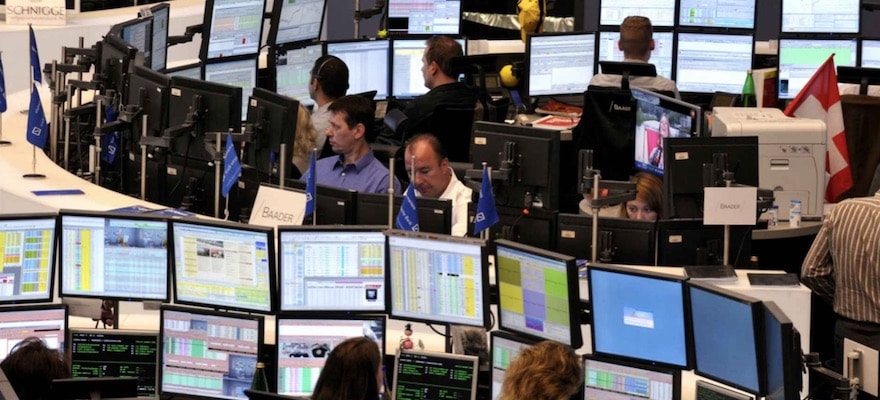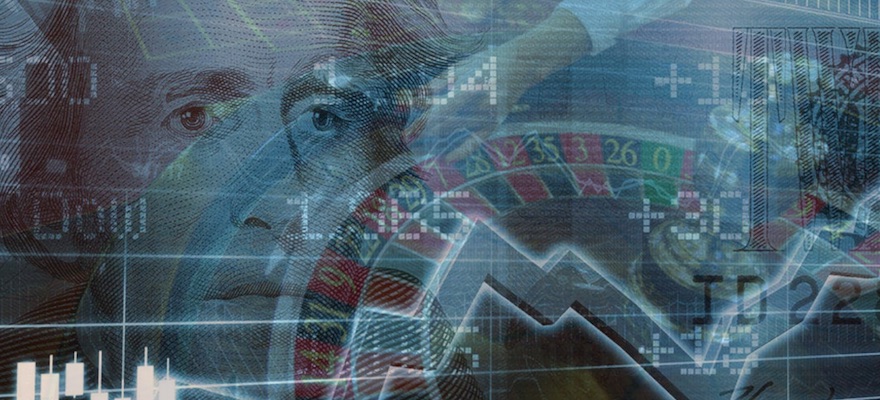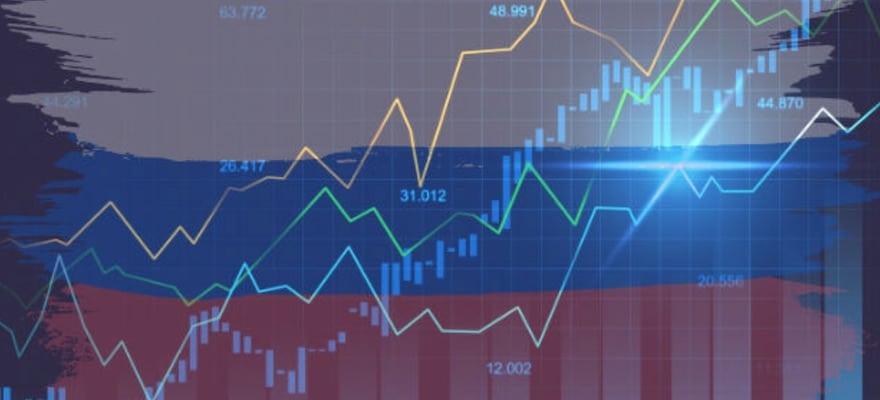Author: Ildar Sharipov, President of InstaForex Group
Last year the central bank of the Russian Federation, the banking watchdog, filed over 200 claims against the so-called forex bucket shops.
Of course, we welcome such initiative: it’s necessary to separate the wheat from the chaff, as scammers hidden behind the mask of forex brokers harm the reputation of the forex market as such.
But the problem runs deeper: on the one hand, the central bank tries to clean up the market system, and on the other hand, it reduces the capacity of the regulated segment of Forex in Russia.
Such an inconsistent approach delays the passage of live traders to the regulated forex brokers. A lot of them turn to Belarusian, European or American brokers.
Russian Wolves of Wall Street damage Forex reputation
The image of the forex market in Russia has been spoiled by the so-called boiler rooms, which are in no way related to the foreign exchange market.
Last October the Russian police solved a billion-ruble fraud case: scammers used a well-known brand to attract investments, then transferred the money to offshore accounts so no one could reach for it.
They acted in a sophisticated way - to make people think everything was real, they used a special program that showed accounts, balance, transactions, etc.
Though it was the largest catch of the Russian police, such forex scammers are numerous in Russia. This is not only the case for Forex, they often sell the stocks traded on the well-known exchanges.
The image of DiCaprio’s character in the Wolf of Wall Street movie appeals a lot of adventurers (though few remember how he ended up), so this semi-criminal - and sometimes openly criminal - business will be live in Russia and far beyond for a long time.
Besides the boiler rooms, scammers use many other schemes related to Forex. Recently, one can find companies offering the bankrupt traders to get their money back from brokers, for a significant reward of course - from 20% to 35% of the initial deposit.
Seized on a ghostly hope, desperate traders make advance Payments and get nothing at all. Such all-experts in the money back often work along with the boiler rooms using the personal information and other confidential data of the clients.
It all starts the same way as with the boiler rooms - with an anonymous phone call to a potential victim. And the Russian forex industry itself has also fallen victim to scammers hiding behind the mask of forex brokers.
What makes Forex look unattractive to many is not about a fear of losing money due to bad trades but rather misselling or scam at various levels and in various forms. Interestingly, the experience of the US boiler rooms was adopted in Russia, and this form of fraud blossomed exactly in Forex.

The detailed study of the issue shows that some trading platforms have been delivered to the market with built-in semi-legal features.
For example, you might be guided where to buy the client database and how to start a call center. And though the technology of such a Trading Platform can be obsolete, this fact will surely be overshadowed.
Selling and buying such a boiler room business package, no one thinks of an end user, a trader. Within this deal, a seller needs to sell a package, and a buyer needs to assess the negative risks of losing everything, sooner or later.
Trading such boiler room packages is popular not only in Forex. Other financial sectors (such as the stock market), though less attractive due to the trading schedule, also suit for such business because of well-known brands to invest in - Google, Amazon, Netflix, etc.
Unfortunately, such doubtful business schemes damage the reputation of the entire forex market. Inexperienced traders can hardly distinguish a fair service provider from a scammer, especially when the latter has an aggressive ad campaign offering tempting trading conditions and promising a fabulous profit.
But there’s always free cheese in the mousetraps, and after such a “mousetrap” slams shut, disappointed investors associate the whole market with misselling.
The Russian regulator does its best to counteract the influx of scammers. Last year Russia’s central bank filed over two hundred claims, but those actions have not changed the situation - Forex keeps losing its reputation.
Forex is not a casino

The situation is getting worse because of a popular myth. Sometimes Forex is associated with a casino. Such statements are usually made either by amateurs or for amateurs. The first ones make it out of ignorance.
The second ones want to look like fighters against evil - they argue that the probability of financial losses on Forex is 100%, though at a casino it’s 50/50. It’s utter nonsense as opening a position for the total deposit with 1:100 leverage and 1 pip spread, a trader de facto pays only 1% of the deposit, taking all the rest.
With a roulette, one loses 3% (with American roulette it’s 5% due to the double zero pocket). In this context, there is not point in comparing a casino bet with a forex trade.
At the same time, to compare a casino bet to a sequence of forex trades with max leverage is as absurd as to compare the expected value of a forex trade to a sequence of big casino bets.
Other comparisons are also incorrect, to say the least of it. Of course, no one knows which direction the price will take, but there are a lot of tools that help to define the trend and narrow the range of outcomes.
The fundamental analysis helps to determine the nature of price fluctuations, and the technical analysis helps to form the price range, the borders of which are support and resistance levels.
Having learned all the tools, a trader can protect his deposit (regardless of the amount) and avoid bankruptcy. Whereas playing the roulette one can count only on a pure chance. A player has a 36:37 chance to lose and only 1:37 to win, and no maths can help.
Forex is associated not only with a casino but also with the stock market and, for some reason, in favor of the latter.
If we examine different markets, we should compare an equal number of trades, consider the spread, max leverage (1:30 and it’s to be lowered), etc. When the comparison is truly objective, Forex is the leader for an expected value per trade.
However, no one makes such a profound study, so Forex always loses to the stock market, though the risk of losing money is almost the same in both markets.
As high-frequency trading (HFT) is more popular on Forex, the statistics show that up to 80% of foreign exchange traders lose money, while it’s only up to 70% among the stock traders. This gap is is widely used at comparing Forex in Russia with a casino.
A lot of potential investors don’t take the high risk though the risk is everywhere - not only in the markets but also in business. There’s a long list of companies and financial giants that went bankrupt, from Lehman Brothers ($691 billion) and WorldCom ($103 billion) to Russian Vneshprombank (₽40 billion).
In spite of these notorious cases, no one compares the banking sector (stock market) to a lottery or a roulette making it less attractive for investors. Forex is pressurized by a distorted public opinion due to the lack of relevant competition in Russia: traders have to accept any conditions having no other choices.
Yet, in Russia, it’s not the only problem of Forex.
Bank of Russia VS Forex

The forex brokers in Russia lack basic conditions to work efficiently - this is one of the main problems in the segment. For example, last year the Bank of Russia opposed the power of forex brokers to identify their clients remotely.
Seems like the regulator couldn’t let the licensed forex brokers transfer their clients to the Russian jurisdiction as the currency trading is related to high risk.
Such a policy is slowing the development of a regulated Forex in Russia: to start currency trading, a trader has to visit the broker’s office, show his identification documents and then open an account to view the quotes updated once in 5 sec.
In such a big country as Russia, a broker needs over 100 offices wasting money for space rental, salaries, and related financial expenses. In the end, all this is paid by the traders: there are no other sources of income for forex brokers.
In fact, actions of the central bank make traders apply to the European, Belarusian or American brokers, which means that the Bank of Russia is slowing down the development of the regulated Forex in Russia declaring the opposite.
As far as consumers' interests are concerned, the ban on remote identification repels the beginning traders, especially when there are such alternativesas the European and American brokers with big players.
There are only four licensed brokers in Russia but we don’t see any rush in their offices. Dry statistics show more: experts say that only 7-9K traders are served in the Russian jurisdiction, and up to 500K traders work with others (unlicensed Russian brokers or abroad).
In other words, only 2% of traders trust the Russian licensed forex brokers. So, what’s the reason for this?
Regulated Forex in Russia: no advantages, huge disadvantages

There are several key problems of the regulated Forex in Russia. Prohibited remote identification, a short list of instruments (only currency pairs), and 1:50 leverage - these are the main cons for traders.
The brokers, in their turn, say that the Russian forex license is troublesome to obtain and expensive to pay for.
To say more, the 5-second delay rule is one more obstacle to the development of the regulated Forex segment in Russia.
According to this rule, once a broker gets a quote from one counterparty, it is prohibited from getting another quote from other counterparties within 5 seconds.
The traders are well aware of how the quote can change for 5 seconds, especially when there’s extreme volatility. For example, after the announcement of the EU referendum results, the GBP/USD quote jumped 300 pips and then plunged 2,000 pips.
It was a matter of seconds, not minutes - the quote had significantly changed in 5 seconds, and the Russian central bank supposes that a broker must keep the price unchanged even in such situations.
This rule makes brokers quite vulnerable and leads to the deliberate slowing down of the quote flow and price distortion. As a broker is not able to provide a client with the best price within these 5 seconds, a trader de facto gets false information.
The market immediately responds to the key macroeconomic releases and a 5-second delay is unacceptable. Note that the macroeconomic statistic is published accurately to microseconds.
The described above rule isn’t related to the protection of traders from high-frequency trading: on Forex, HFT, which reduces the statistic on profits of forex traders compared to the stock traders, means several trades per day, and no 5-second delay rule will help.
As a result, forex brokers suffer extra non-market risks, inevitably paid by the traders.
What’s in the US and EU?
In other countries, strict regulation is harmonious with convenient trading conditions. For example, the Commodity Futures Trading Commission (CFTC), an independent agency of the US government, regulates options and futures markets and oversees the commodity exchanges in general.
The US watchdog analyzes the operations of forex brokers using the automated system. It’s a kind of single transaction database which saves all orders of the clients.
When necessary, the NFA investigators can learn the details of any trade: date, time, open and close price, volume, etc. In other words, the regulator has an opportunity to investigate any deviations from normal trading.
Again, if we get back to the question of remote client identification, the international experience proves that the position of the Central Bank of Russia is outdated. In the USA, Australia, EU and the UK, a broker identifies a client having only the scanned copies of the documents sent by email.
Moreover, in the US and some EU countries (Germany, etc.) remote identification is legally allowed - in some cases, a client can open an account even using his smartphone.
Belarus is to be the new “Cyprus” for the Russians
Besides the EU countries and the United States, where the financial service sector has formed a long time ago and keeps developing,Belarus becomes more and more popular among the Russian traders and brokers.
As soon as Belarusian businessmen change their focus from the transit of shrimps and tangerines from the sanctioned countries to Russia and turn to financial service, Belarus risks becoming the new “Cyprus” for the Russians in terms of forex brokerage.
Minsk has created an economic stimulus for foreign forex brokers to start a business in the country by developing clear and reasonable rules. First of all, it’s the tax policy: there is no income tax for individual traders (at least until December 31, 2019).
Secondly, the highest leverage in Russia is 1:50 (the regulator may allow 1:100); in Belarus - it’s 1:100 to be increased to 1:200. Higher leverage doesn’t mean a trader will use it, as the max speed of 250 km/h on speedometer doesn’t mean a driver will test it.
But the fact attracts traders. Thirdly, the Belarusian brokers are allowed to hedge their risks at foreign counterparties. And in the end, individual traders working with the Belarusian brokers may be remotely identified and trade as soon as they want.
Despite such convenient conditions, Forex is strictly regulated in Belarus. The Presidential Decree No 231 as of June 4, 2015 states that only companies registered in Belarus and included in the register of the National Bank of the Republic of Belarus are allowed to operate on the over-the-counter market.
The ESMA: European experience
Forex regulation in Russia demands a modern approach, which combines and adopts the best European and U.S. solutions. The latest directives of the European Securities Markets Authority (ESMA), the banking watchdog in Europe, can be used as landmarks. Early last year, it introduced the new requirements to the financial markets.
Firstly, the ESMA unified the rules of cooperating with foreign companies outside of the EU. Before the directive was issued, every country of the EU had set its own rules to the financial operations, so the monitoring conditions had also varied.
Secondly, the ESMA had decided to increase the level of transparency of the financial markets: it implemented the investor protection topics under the Market in Financial Instruments Directive and Regulation (MiFID II/ MiFIR) and reinforced the existing requirements.
This was done in spite of the fact that the ESMA had already tightened its requirements in 2018.
All the European brokers now have to ensure an investor is provided with the best conditions to achieve the highest result - at least, they must follow the rules carefully. In particular, a trader must provide an investor with a detailed report on each operation within two days upon the request.
The report should contain the following information: who executed order, the amount of broker’s fee, how the broker earned it (spread or commission), partner’s reward (if any), etc.
Moreover, the brokers must clearly describe the risk of losing money investing in Forex. Few brokers have spoken openly about risks - now it’s their obligation.
To control the segment, the ESMA investigators monitor the volume of all the positions on derivatives by the unique number assigned to every broker (no broker can operate without this number).
So on the one hand, the regulator demands every broker to be transparent and responsible, and on the other hand, it doesn’t put any obstacles for the development.
There is no 5-second delay rule in the EU countries, on the contrary, the ESMA encourages high competition among forex brokers. This allows investors to enjoy ultra-low spreads that increase the outcome of their trading.
There is social trading popular in the EU countries, and the ESMA indirectly supports it. So the watchdog economists tabulated the data they had received from the brokers (according to the new Directive, the brokers must disclose it) and showed that social trading contributed to the traders’ profit growth.
The ESMA published a rating of brokers where traders had gained the biggest profit: it turned out that three of five brokers offer trade copying service. In general, social trading has great potential for development - and the regulator doesn’t ignore it but encourages.

(Un)promising start
Here we should make some conclusions. Since Russia adopted the Federal Law, which unified the Foreign Exchange regulations, almost four years ago, the development prospects for the Forex market has been vague.
A lot of the subsequent actions of the Central Bank of Russia are clearly divorced from reality, being knowingly losing for the development of the regulated segment of Forex in Russia.
Hundreds of thousands of Russian traders prefer foreign brokers to the licensed Russian ones. In other words, since 2015, the Bank of Russia couldn’t make both traders and brokers think that its policy is competitive and beneficial.
While the ESMA tightens the regulation policy for all the brokers and investment companies, the Russian watchdog uses a selective approach to Forex, making the rules initially impracticable for the forex brokers, so no one is able to trade with a regulated forex broker in Russia.
However, the Bank of Russia hasn’t crossed the line yet to make the changes irreversible. Only a few wise steps can improve the situation in the segment. First of all, the regulator should allow remote client’s identification: online registration is secure and popular.
In the age of high technology, the Bank of Russia makes traders from smaller cities to work with Belarusian, EU, Australian, and U.S. companies. The same is true for the 5-sec delay rule.
As said above, it’s not an obstacle for scammers but a hurdle for traders and brokers. Besides, Forex in Russia needs social trading to be supported by the central bank.
It’s not the complete list of problems the Russian forex segment faces - but these are the main ones making the market less attractive. If Russia makes changes in the Foreign Exchange law, the segment of the regulated forex market will have a bright future and prospects for full-scale development.
For now, we observe a sad picture of Forex in Russia: only 2% of traders trust Russian licensed brokers.
Some suppose that the topics we highlighted have been discussed by the economists of the Bank of Russia. We can’t predict the actions of the central bank: sometimes, the reasons for the measures taken are simple though not evident.
All we have to do is to keep following, making conclusions and hoping for the best.
Contact for enquiries: media-enquiries@instaforex.com











